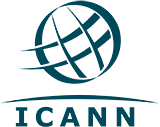User-Generated Content (UGC) platforms are online platforms that allow users to create, share, and modify content in the form of text, images, videos, music, or other media. These platforms have proliferated in the digital age and have had a significant impact on how we consume information and entertainment online. Here is some key information about user-generated content platforms:
Examples of User-Generated Content Platforms:
Social Media: Platforms like Facebook, Instagram, Twitter, and TikTok enable users to create and share content, including photos, videos, and text.
Video Platforms: YouTube is the most prominent example, where users can upload and share videos.
Blogs: Platforms such as WordPress and Blogger allow users to create personal blogs and publish content online.
Online Forums and Communities: Reddit, Quora, and similar sites allow users to post questions, answers, and engage in discussions.
Wikis: Wikipedia is a prominent example of a wiki platform where users can collaboratively contribute and edit content.
Crowdfunding Platforms: Kickstarter and Indiegogo are examples of platforms that enable users to fund creative projects.
Characteristics of UGC Platforms:
Active User Participation: On these platforms, users play an active role in creating, editing, and sharing content. This contrasts with traditional media where the audience is primarily passive.
Community and Collaboration: Many UGC platforms foster the formation of online communities where users can interact and collaborate on projects and discussions.
Diversity of Content: Due to the open nature of these platforms, a wide variety of content can be found, ranging from educational topics and news to entertainment and memes.
Moderation: Given the diversity of users and content, UGC platforms often implement moderation systems to maintain a safe environment and prevent inappropriate or illegal content.
Monetization: Some platforms allow users to earn money through advertising, follower donations, product or service sales, and other monetization methods.
Impact and Considerations:
UGC platforms have democratized content creation and distribution, allowing diverse voices and perspectives to be heard online.
However, they have also posed challenges in terms of misinformation, privacy, and online abuse, leading to debates about regulation and platform responsibility.
The virality and the ability of UGC platforms to rapidly amplify content can have a significant impact on society, as seen in cases of fake news and social movements.
In summary, user-generated content platforms are a fundamental component of the current digital landscape, enabling people to share their ideas, creativity, and knowledge online, although they also present challenges in terms of responsibility and moderation.














